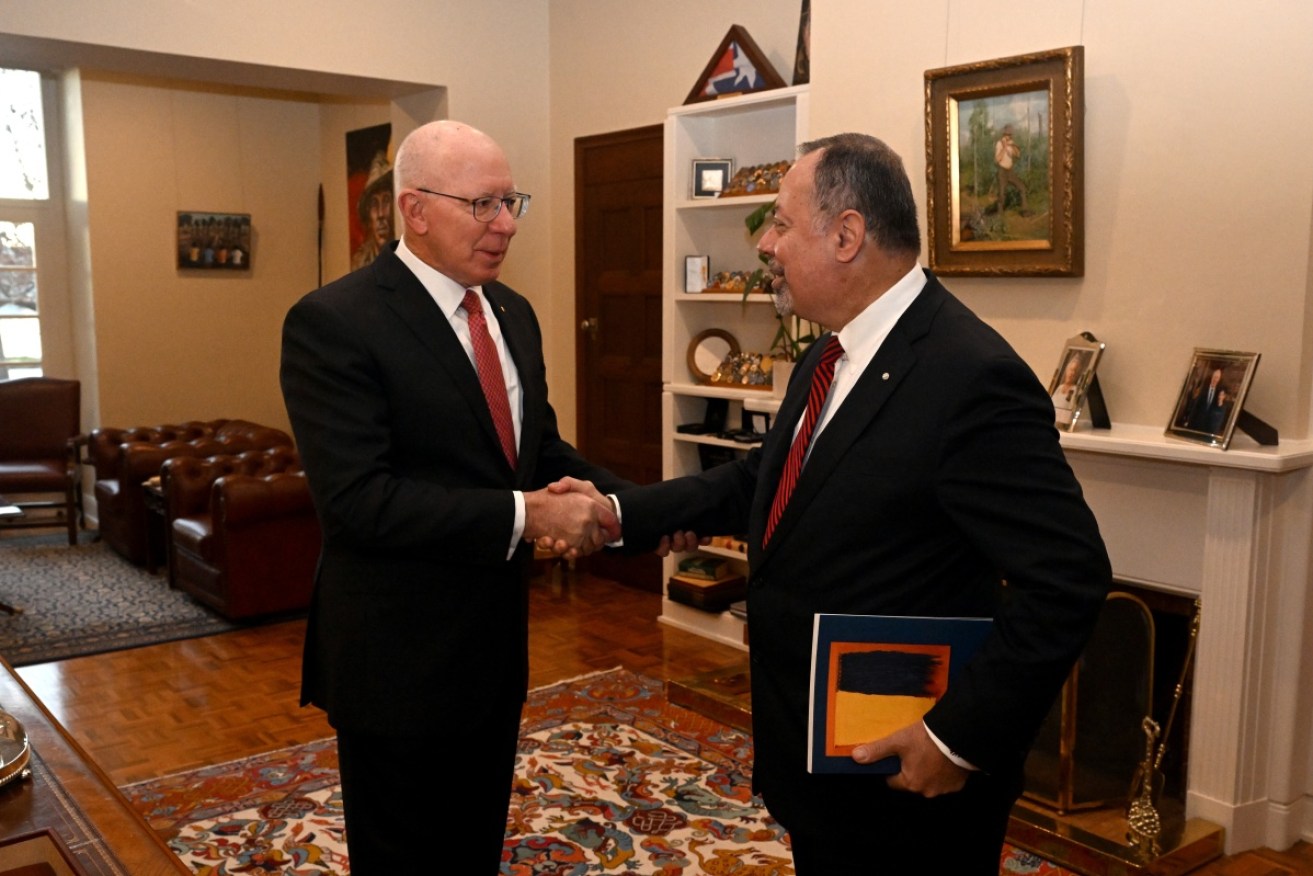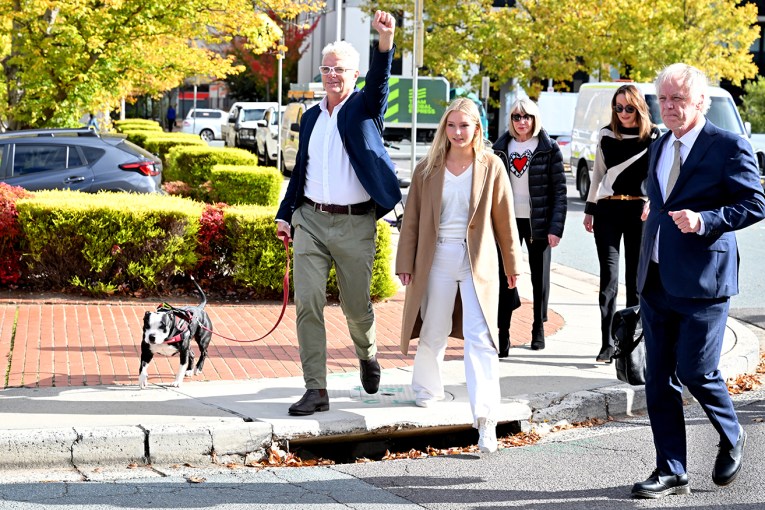Government given defence support deadline

Governor-General David Hurley, left, receives the interim report from commissioner Nick Kaldas. Photo: AAP
The federal government has apologised to Australian veterans and their families for failings in the way the defence forces and veterans’ affairs department have operated.
The apology came after the Royal Commission into Defence and Veteran Suicide released its 300-page interim report and 13 initial recommendations on Thursday.
“To people that have felt they have not got the treatment that they deserve … I apologise for that,” Veterans’ Affairs Minister Matt Keogh said in Canberra.
“It wasn’t under our watch, but as the government of this country, veterans always deserve the best and we should be delivering that.”
Opposition Leader Peter Dutton said Australians wanted to see veterans treated better, but issues could not be fixed overnight.
“Certainly from my perspective [the Coalition] provided every support, not just through increased funding but additional support through services, mental health services and the like,” Mr Dutton said in Sydney.
“There is enough blame to share across both sides of politics, but I think this is not an issue about politics … we should be doing more as a country to provide support to those who defend us and keep us safe.”
The commission recommended urgent changes to Australia’s defence personnel support network, and that the backlog of more than 41,000 veterans’ claims be cleared by March 2024.
It also recommended the government introduce legislation to parliament to simplify and harmonise veteran compensation and rehabilitation.
Opposition veterans’ affairs spokesman Barnaby Joyce said the Coalition expected to support the government as much as it could in that process.
“I don’t expect veterans’ access to the support they’re entitled to to be delayed by unnecessary reasons,” he said.
“It’s vitally important that this process takes place. I was always a supporter of a royal commission, and it was the Coalition that brought it about in government.”
Mr Keogh said he didn’t have a time frame for when the backlog would be cleared, but he wanted it done as soon as possible.
He said the government had allocated 500 additional staff to the department to help process the claims.
“All people who put on a uniform and sign up to serve our nation … deserve the best support while serving and after they transition to civilian life,” Mr Keogh said.
“This is particularly the case when individuals encounter mental and physical injury. This is a commitment that we owe our defence personnel, veterans and their families.”
Mr Joyce wanted more details on the funding and tasks of the additional staff, and expected the government to provide information in the October budget.
“A number is important, but the process of what they actually do is vital to understand the issue is being addressed,” he said.
Mr Joyce also called for the veterans’ portfolio to be returned to cabinet.
“Having veterans’ affairs languishing in the outer ministry … does not show proper respect for the importance of the issues in need of reform,” he said.
“The government … must show competency, not just in what needs to be done, but in how it is actually going to do it.”
Meanwhile, Mr Keogh said he had confidence in the veterans’ affairs department to assist defence personnel as much as possible.
A formal response from the government to the commission will be provided in coming months.
“We recognise the importance and the significance of this report. It is vital that these [recommendations] are now addressed as a priority,” Mr Keogh said.
The royal commission will continue its inquiry, with its final report due by June 2024.
Lifeline 131 114
Open Arms 1800 011 046
-AAP








